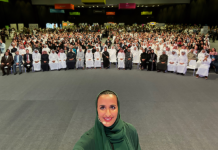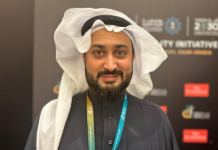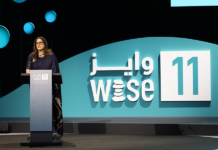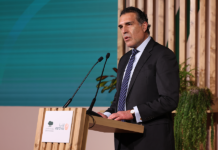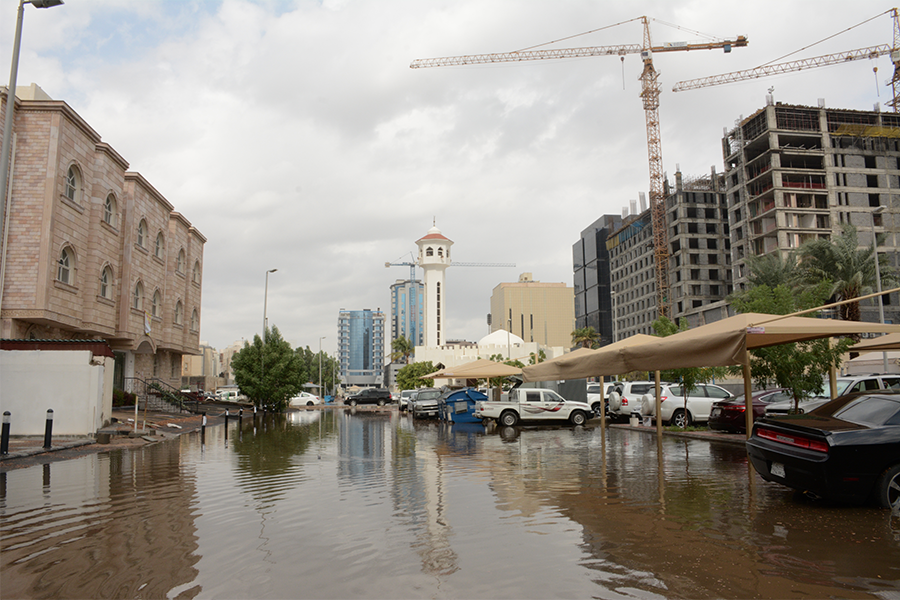
Mustafa Mousa, founder of flood mitigation startup Sadeem, is using wireless sensors and AI to save lives and protect cities from the billion-dollar devastation of floods.
When Mustafa Mousa started studying for a PhD at the King Abdullah University of Science and Technology (KAUST) in Saudi Arabia, the country’s Red Sea coast was still recovering from unprecedented flash floods that had cost the lives of hundreds of people and caused hundreds of millions of dollars of damage.
Almost instinctively, Mousa and his research colleagues found their work gravitating towards developing wireless sensor systems that could help cities detect floods early and mitigate their impact fast.
A decade later, what started out as a postgraduate university research project has evolved into award-winning tech startup Sadeem, the world’s first multi-patented flood mitigation system. The solution that Mousa and his founding colleagues designed is installed in 13 cities in six countries, including the UAE, Mexico, Canada, Spain, the United States, and Saudi Arabia. Around the world, Sadeem is saving lives and reducing the economic losses caused by flooding.
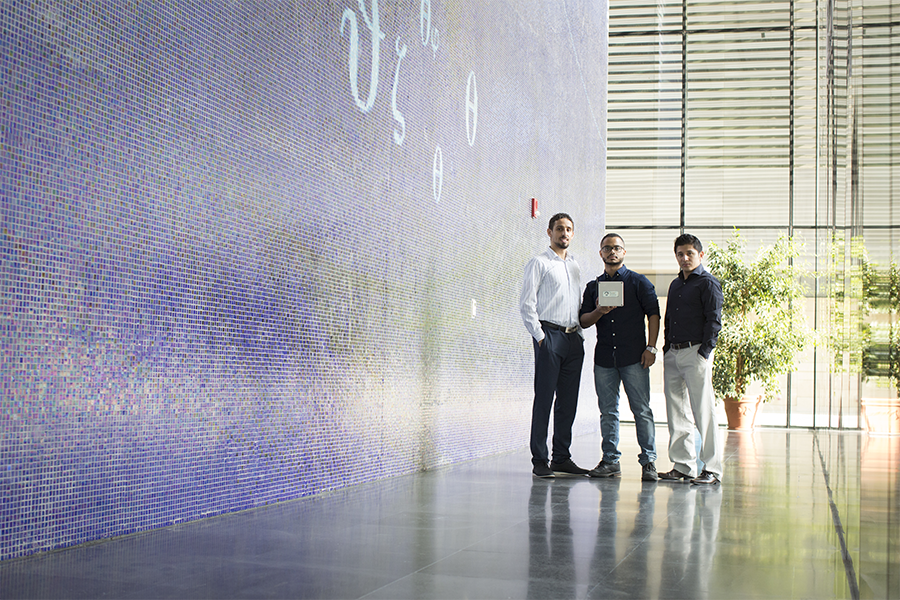
“Sadeem has had a profound impact on flood management in various cities,” Mousa says. “We are now experiencing unprecedented growth.”
Sadeem’s compact, secure, and cost-efficient sensors are deployed in streets, drainage systems, and other critical locations. Sadeem combines data from these sensors with inputs from external sources and historical records. Using machine learning techniques, the system analyzes this information and visualizes it for end users on data management apps. With easy access to real-time analytics about the propagation and evolution of water levels around a city, municipal authorities and contractors can quickly assess the severity of a flood, identify potential blockages in drains, and forecast how waters will propagate. They can take urgent action to mitigate the risks of floods, for example by making public warnings and evacuating people where necessary.
“Sadeem’s main aim is to protect cities and their residents from flooding. Changing people’s lives and making a real difference is our greatest reward.”
Mustafa Mousa, Founder, Sadeem
Wherever it has been implemented, Sadeem has had a dramatic impact on flood management and enabled cities to monitor, maintain, and inspect drainage and other critical infrastructure more cost-effectively.
“As well as helping protect infrastructure from flooding, Sadeem provides insights and recommendations to authorities about maintenance schedules, emergency plans, and strategic planning,” Mousa says.
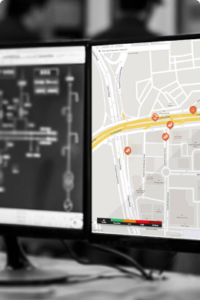
“The cities where we are present are using Sadeem’s data and technology to make better decisions and improve the quality of life for their residents.”
As well as working closely with city departments and contractors, the startup is also developing partnerships with insurance companies. Data analytics from Sadeem can help insurers make risk assessments more accurately and offer lower premiums to their customers.
Meanwhile, road departments across the Middle East are interested in using Sadeem to improve road maintenance services.
“We believe that whatever you measure, you can manage,” Mousa says. “By utilizing and analyzing data more effectively, Sadeem helps cities manage their resources, protect their infrastructure and make better decisions for the future.”
How is Sadeem using data and AI to transform flood management?
In three key areas—efficient investment and spending, resource sustainability, and quality of life—we are harnessing the power of data and AI to make a positive impact. When protecting critical infrastructure from flooding, Sadeem monitors real-time data and analyzes its database to understand the distribution of the new data and identify relevant information. Using this information we can provide relevant recommendations to the authorities. All of these insights are generated out of the data and the algorithms we use. Sadeem enables the optimal utilization of resources. It is like monitoring your weight and receiving dietary recommendations.

What impact has Sadeem had in the cities where it is deployed?
We have received overwhelmingly positive feedback. In Canada, we have signed five-year contracts with our customers, which is testament to their desire to maintain an ongoing engagement with us. In Saudi Arabia, after a successful use case in one major city, the government has recommended deploying our solution in every city in the country. We have demonstrated clear economic and logistical benefits. Saudi Arabia is a huge market for us and we are now working on the nationwide implementation process.
How are you funded and what plans do you have for raising new funds?
We initially began as a research group with no intention of creating a commercial venture. With the support of the KAUST accelerator program, Sadeem became an independent company. Initially we relied on our financial resources. We raised seed funding from KAUST and Wa’ed Ventures, which is the entrepreneurial venture capital arm of Saudi Aramco. KAUST provides us with the support to manage our operations and develop new solutions.
Like any startup, we are in continuous fundraising mode. We are in discussions with various investors as we enter the phase of raising additional funds. We are communicating with both our existing investors and with new potential investors in order to secure full Series A funding for Sadeem![]()







